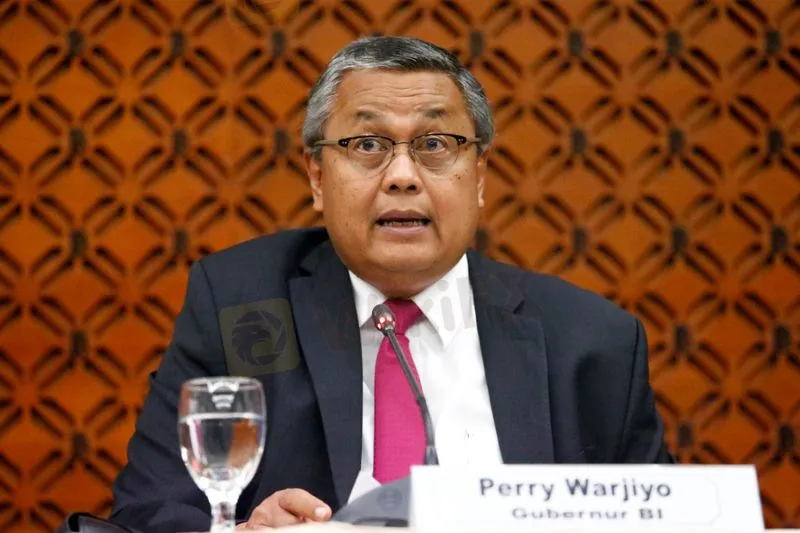简体中文
繁體中文
English
Pусский
日本語
ภาษาไทย
Tiếng Việt
Bahasa Indonesia
Español
हिन्दी
Filippiiniläinen
Français
Deutsch
Português
Türkçe
한국어
العربية
Indonesia seeks synchronised monetary exit policy at G20
Abstract:Indonesia wanted “well calibrated, well planned, well communicated” policy normalisation by the developed world, said Bank Indonesia Governor Perry Warjiyo, that would avoid spillover impact for emerging markets trailing in their economic recovery.

G20 president Indonesia will seek a synchronised global policy normalisation as developed nations began to tighten monetary policy as their economies recover from the COVID-19 pandemic, the country's top economic leaders said on Thursday.
The comments were made as Indonesia kicked off the first meetings for G20's financial track under its presidency on the tourist island of Bali, where the exit policy strategy was high on the agenda of a meeting.
Indonesia wanted “well calibrated, well planned, well communicated” policy normalisation by the developed world, said Bank Indonesia Governor Perry Warjiyo, that would avoid spillover impact for emerging markets trailing in their economic recovery.
“Emerging nations generally still wish to support their economic recovery. For that, the emerging nations that are not planning policy normalisation should be given the ability to protect themselves,” Warjiyo told journalists.
The meeting was held in a hybrid format, with some participants attending physically, others remotely.
Across the globe, policymakers are rolling back their loose monetary and fiscal policies implemented to cushion their economies from the impact of the pandemic, as price increases were starting to heat up.
Policy synchronisation means developed nations are expected to tackle rising inflation with appropriate tools to avoid “inflicting damage on the rest of the world,” Indonesia's Finance Minister Sri Mulyani Indrawati said.
“They should take measured, careful steps, be more staging,” she said. “So that they don't use a broad-based policy that will affect every economy, when the problem is micro-structural.”
Indonesia was among the emerging countries worst hit by outflows during the so-called “taper tantrum”, when the U.S. Federal Reserve announced a plan to taper its quantitative easing in 2013, which saw the rupiah plummeted 20% against the dollar.
Officials have said Indonesia can weather the Fed's tapering better this time, as the global commodity boom has improved its external balances.
Meanwhile, the global economic recovery from the pandemic has been uneven due to unequal distribution of vaccine, with poorer countries struggling to inoculate remote populations, Sri Mulyani said.
She called for a funding commitment to address the current pandemic and mitigate future global outbreaks, which she hoped could be agreed during Indonesia's presidency under the newly formed G20 task force.
For more Forex news, please download WikiFX- the Global Forex Regulatory Inquiry APP.
Disclaimer:
The views in this article only represent the author's personal views, and do not constitute investment advice on this platform. This platform does not guarantee the accuracy, completeness and timeliness of the information in the article, and will not be liable for any loss caused by the use of or reliance on the information in the article.
Read more

Twin Scam Alert: Broker Capitals is a New Domain of Finex Stock
This week, the Italy financial regulator CONSOB issued a warning against an unlicensed broker named Broker Capitals. When we clicked on Broker Capitals' website, its logo, trade name, and design seemed familiar to us.

Berkshire CEO-designate Abel sells stake in energy company he led for $870 million
Berkshire Hathaway Inc said on Saturday that Vice Chairman Greg Abel, who is next in line to succeed billionaire Warren Buffett as chief executive, sold his 1% stake in the company’s Berkshire Hathaway Energy unit for $870 million.

Paying particular heed to payrolls
A look at the day ahead in markets from Alun John

Dollar extends gains against yen as big Fed hike bets ramp up
The dollar extended it best rally against the yen since mid-June on Monday, buoyed by higher Treasury yields after blockbuster U.S. jobs data lifted expectations for more aggressive Federal Reserve policy tightening.
WikiFX Broker
Latest News
Japan to Take Action to Stabilize the Yen
Ringgit Remains Flat Amid Holidays, US Debt Concerns Loom
Taurex: Is it Safe to Invest?
Vietnamese Police Bust $1.2 Million Crypto Fraud Case
WikiEXPO Global Expert Interview: Loretta Joseph——Unlock the forefront of digital finance
Malaysia’s Securities Commission Enforces Ban on Bybit & Its CEO
Will Gold Shine Brighter in 2025?
Will Inflation Slow Down in the New Year 2025?
The WikiFX 2024 Annual User Report is here! Come and claim your exclusive identity!
SCAM ON SCAM: New Tactic Used by Scammers
Currency Calculator


